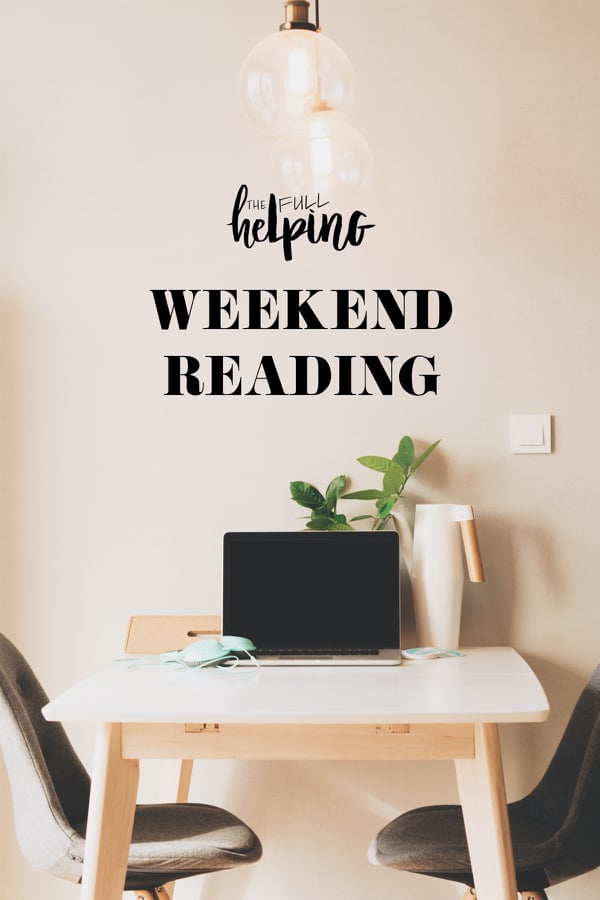
My voice is hoarse from singing, and lots of it. I was at a kirtan last night at my yoga studio, basking in that awesome community and the friendships I’ve made within it. The kirtan featured mash ups of Vedic chants and contemporary songs: the Beatles, Magnetic Fields, Madonna. The kirtan purist in me was a little affronted when I heard that the program would work this way, but I’m glad that I kept an open mind. It was wonderful.
Kirtan and yoga: two experiences that make me feel both light and joyous. I emphasize this fact because this month, May, is mental health awareness month, and because lightness in particular is not a sensation that comes easily to me. I’ve struggled with depression, on and off, for a long time. Even when it’s distant, which it often is, I have a melancholy temperament. I’ve had it for as long as I can remember, and with it the tendency toward excessive rumination, seriousness, and sadness.
You probably wouldn’t realize this meeting me for the first time. I tend to come across as confident and upbeat. It’s not an affect; I’m both of those things in many ways. But, like many people with melancholy temperaments, I’ve learned to keep my sadness bounded. The sunny disposition is something that I cultivate consciously, for myself as much as for others, working against the pull of dark moods.
This is a hard thing to admit to in the age of Instagram, with all of its glossy imagery and carefully curated narratives. It’s especially hard to admit when you spend a lot of time on social media, by choice and by necessity. It runs against the “positive vibes only” trope, which seems more and more predominant these days.
I don’t take that imperative too seriously (and I don’t actually dislike it, depending on the context), but how to make sense of it when your positive vibes share space with a whole lot of not-so-positive ones? I often hear that we “choose our thoughts,” but is that the case when thoughts are both repetitive and intrusive? And, while “happiness is a choice” feels spot-on to me sometimes, how true is it, really, when you have depression?
I’ve been writing about eating disorder recovery for a long time: naming it, owning it, disclosing the little, unsavory details. That, combined with the softness and self-compassion that recovery teaches, has allowed me to release pretty much all of the shame that surrounds the disease. It doesn’t trouble me to talk about it, even when that means talking about the messiness and non-linearity of my recovery.
I’m not sure I feel this same lack of shame when it comes to talking about other mental health struggles. I’m getting used to naming my depression and anxiety, but there’s still a moment of hesitation when I do it—less when I’m here than when I’m out in the world. It’s not hard for me to admit that I’m anxious—heck, so many of us are—but admitting to having had panic attacks is a little different. And it’s hardest of all to talk about the fact that I’ve self-harmed in the past, though that’s an honest part of my story, too.
When one’s culture is heavily oriented toward the conscious cultivation of a positive mindset and a happy posture, difficulty accessing happiness can feel like failure. Mental health struggles, no matter how hard we’re working to de-stigmatize them, can feel like failure, too.
As I was writing this post, I asked myself a question that I’ve asked about my eating disorder: would I take it back if I could? It’s a trick question, of course. The disorder, like everything else, is part of who I am. Wishing that I could erase it would be akin to wishing I weren’t myself, and—the obvious quips aside—that’s not actually what I want. ED recovery, with all of its lessons, is part of who I am, too.
I don’t pretend to regard my mental health struggles as blessings. That feels too pat, and it’s not exactly the truth. I often wish I could feel contented more easily, that I didn’t obsessively overthink things, that negative thought patterns weren’t so often my default. I wish that sadness didn’t sometimes descend on me without warning, like stormy weather. But these patterns aren’t active choices; they’re tendencies that are built into my foundation, so to speak. I have do a degree of choice about how I manage them, and I’ve developed a toolkit that invites me to challenge them when I can.
In the meantime, I do my best to make peace with myself and my history, which is another skill that recovery has gifted me with. I take comfort in the fact that happiness may be a little elusive for me, but I have steady access to a wide spectrum of feeling. It includes joy, awe, pleasure, and love. It also includes grief, anger, and loss. Anyone who has experienced depression as a kind of numbness and absence of feeling—which is how it has felt to me at its very worst—might understand when I say that experiencing true feeling, both painful and pleasurable, registers as a gift.
Depression and anxiety have taught me a lot, just as anorexia did. They’ve taught me to give thanks for what’s sweet. We read a lot about practicing gratitude these days. It always sounded like a worthy exercise to me in the past, but depression is actually what has taught me how to do it. Without fearing pain or despair, I give thanks for every moment of gladness.
Depression and anxiety have also taught me to stop sweating the small stuff. This isn’t to say that I don’t get agitated about work, relationships, and family—who doesn’t? But the little things—annoying encounters, train delays, boring errands, crummy weather—they don’t bother me the way that they used to. It’s not because I’m an especially calm or sensible person. It’s because I remember how deeply unhappy I was a few years ago, and when I remember that, life’s little irritations stop mattering quite so much. Having fought for happiness, I’m eager not to squander it.
A couple years ago, at Maria’s suggestion, I read Naomi Remen’s Kitchen Table Wisdom. In it, she writes “wounding and healing are not opposites. They’re part of the same thing. It is our wounds that enable us to be compassionate with the wounds of others . . . I think I have served people perfectly with parts of myself I used to be ashamed of. ”
These words capture the best way I have of understanding my own struggles with mental health. As long as the struggles are there, and they probably always will be, I consider the ways in which they’ve made me stronger, more resilient, more empathic. I ask myself whether they’ve enriched my perspective on life or made me more appreciative of love and kindness. The answer to both questions is yes.
Mental Health Awareness month or not, I’m glad for any opportunity to create a real, non-judgmental, and compassionate conversation about the mental illnesses that affect so many of us. If you’ve got one, or a couple, know that we’re all in it together. Today and always.
Happy May. Here are some recipes and reads.
Recipes
Kathy’s easy blueberry sauce is perfect for topping waffles, pancakes, oatmeal, French toast, and all of the other breakfast things. I’ve been making a similar one with frozen blueberries this winter, but I’m going to take her advice and add some cornstarch for a little thickening!
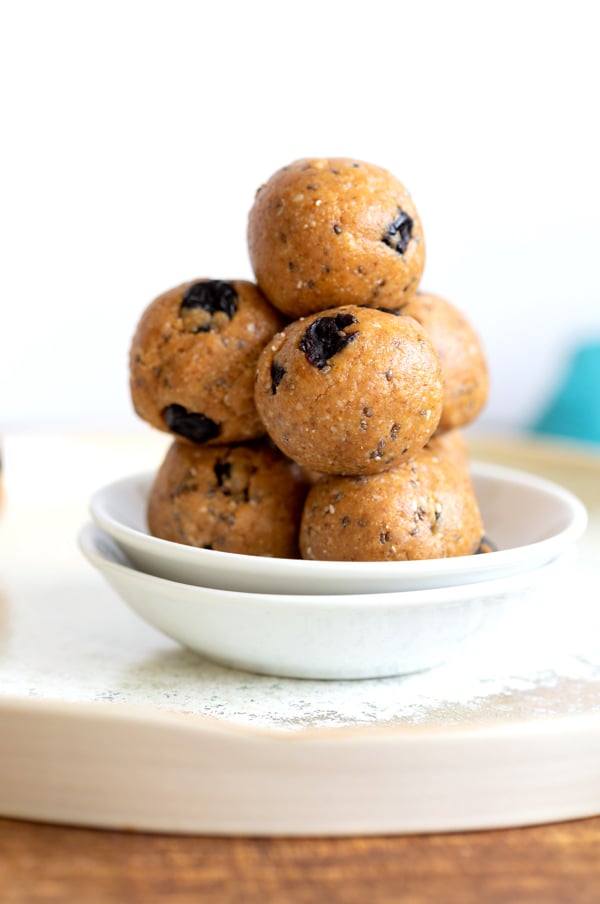
Speaking of blueberries, Richa’s blueberry muffin energy bites will be perfect fuel for my upcoming food service rotation.
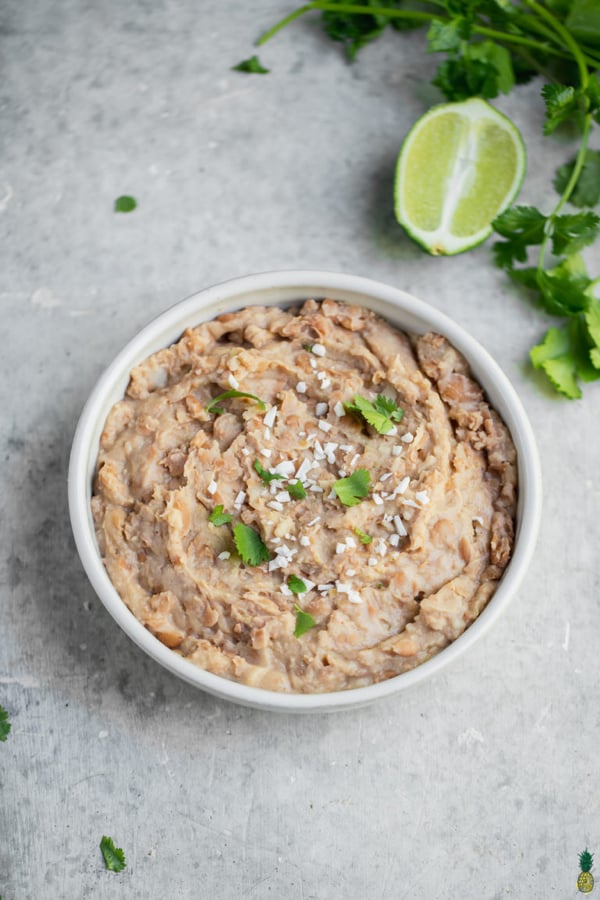
I eat a ridiculous number of breakfast tacos. I think Jasmine and Chris’ vegan refried beans may need to become a new staple ingredient.
For the olive lovers out there, a simple, elegant, briny spring pasta.
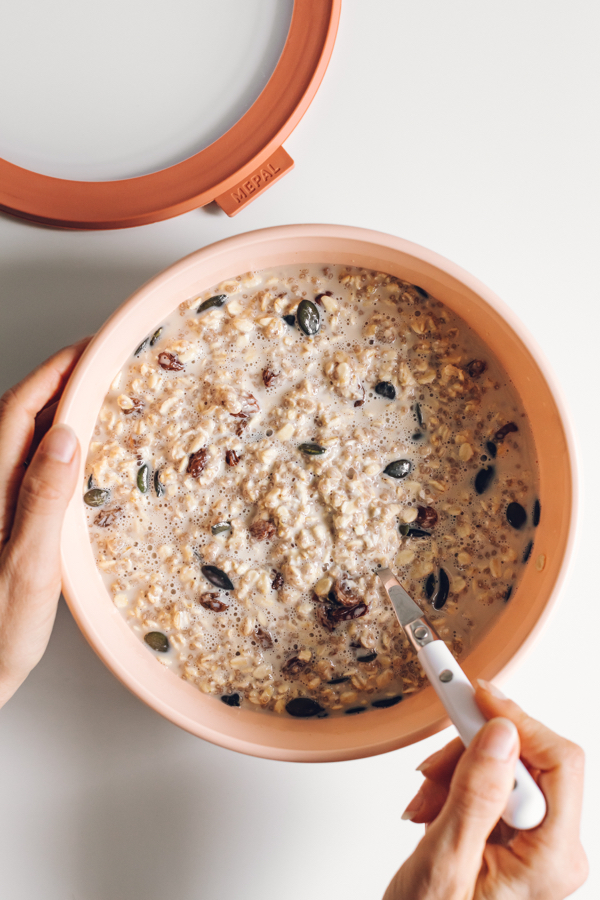
Finally, my sweet friend Jessie May is launching a vegan cookbook club, and she kindly chose Food52 Vegan as one of the first selections! She’s sharing the book’s muesli now on her blog (and reminding me to cook more from this one, which has gotten a little neglected since Power Plates came out).
Reads
1. Lots of good news about the mainstreaming of vegan meats this week.
2. Julie Kim has written a brave and beautiful essay about her daughter’s congenital genetic disorder how it has changed her experience of parenting.
3. I think Erika‘s baking experiments are mesmerizing, and I loved this Taste profile of her work.
4. A new study finds that girls who have serious or repeated infections in childhood are at higher risk for developing eating disorders in adolescence. It’s unclear whether anti-infective agents or psychological factors (stress and trauma associated with serious illness) explain the association, but it’s interesting. The New York Times reports.
5. Not a new article, but I just found and loved Robert Sietsema’s ode to NYC’s last standing hippie cafés—places where a macro plates are in abundance and TVP and seitan continue to take starring culinary roles. This is the way I love to eat, and it always will be, no matter what other plant-based trends pop up. Reading the article reminded me of my own farewell tribute to the late, great Angelica Kitchen. Thank goodness that a few of these old-school treasures are still around.
Tomorrow morning I begin my food service management rotation. I don’t have a schedule yet, so I’m not entirely sure what to expect, but I’m taking a second to acknowledge that I’m only two rotations away from completion of the internship (it’ll be done mid- or late July). My stamina is waning a little, but I’m still going. Sending you love, and see you around here this week.
xo
The post Weekend Reading, 5/5/19 appeared first on The Full Helping.

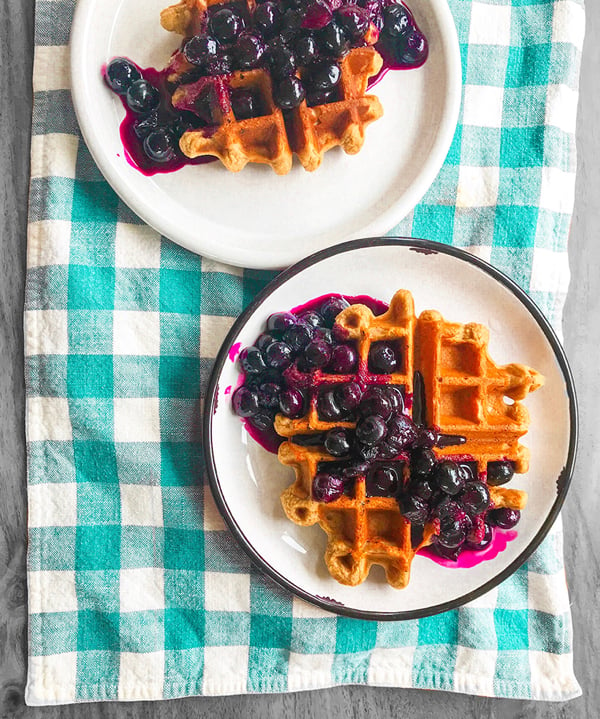
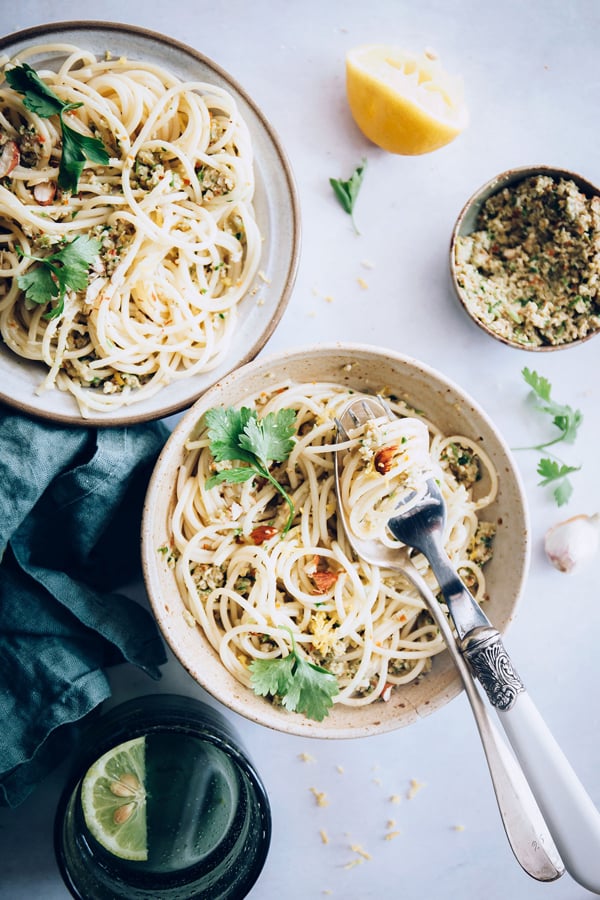
0 comments